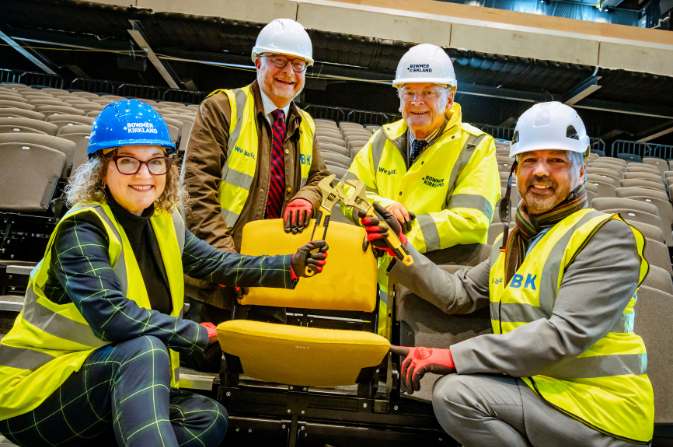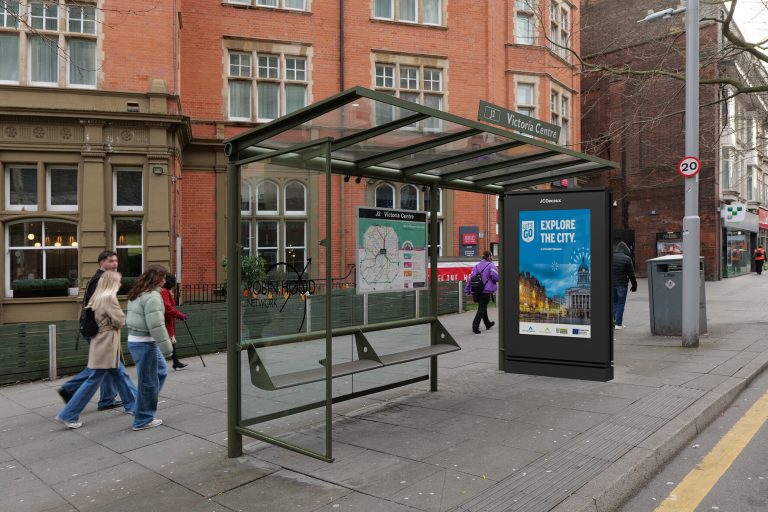Nottingham Energy Institute in £5m collaboration to scale climate start-ups
Golden seat marks milestone at Becketwell Live
JCDecaux UK awarded council’s digital advertising contract
Bambinos & Beyond expands with letting at Maltings Industrial Estate
Castle Donington software provider reaches agreement on £36m acquisition
K3 Business Technology Group has reached agreement with SYSPRO, a Castle Donington-based ERP software provider, for the sale of the Group’s wholly owned subsidiary, NexSys.
NexSys is a leading SYSPRO elite partner in the UK and has over 40 years’ experience of providing and supporting specialised business software solutions to manufacturers and distributors.
Under the terms of the agreement, the total consideration for NexSys is £36 million.
Jaco Maritz, Chief Executive Officer of SYSPRO, said: “SYSPRO, an Advent and Safari company, believes that NexSys is a compelling strategic fit given the company’s position as a trusted provider of digital solutions to manufacturing and distribution companies across the UK and Europe.
“The carve-out acquisition is a key milestone in Safari’s SYSPRO strategy to expand its global footprint, strengthening its presence in the UK and extending its reach across Europe. The acquisition will also enable SYSPRO to expand its highly regarded digital manufacturing suite with new products and capabilities.
“Safari believes there are further initiatives that would help accelerate its existing strategy and which it intends to confirm after a detailed review of the business and operations following Completion. Safari and SYSPRO attaches great importance and value to the skills, experience and commitment of the existing management and employees of NexSys.”
Eric Dodd, Chief Executive Officer of K3 Business Technology Group plc, said: “As the UK and Ireland’s largest reseller of SYSPRO software, our NexSys business is a superb fit for Advent, and we are delighted to have reached this agreement.
“Advent is a leading technology investor and its purchase of NexSys is a natural next step following its recent acquisition of a majority holding in SYSPRO. Advent has the resources and market experience to more fully capitalise on NexSys’s strategic value.
“We view the proposed sale as an excellent outcome for K3 shareholders, NexSys, and Advent and recommend that shareholders vote in favour the proposed sale at the Company’s General Meeting in December.”
How to plan an expansion to your business in the East Midlands
Derbion unveils updated plans to revitalise key sites
 Commenting on the masterplan proposals, Beth McDonald, Managing Director at Derbion said: “As Derbion continues to attract leading retail and leisure brands, our position in the heart of the Derby means that we have an important opportunity to evolve and develop our wider footprint to improve the vitality of the city centre and increase connectivity.
“The masterplan proposals are a framework for development over the next 10 years and beyond to revitalise three key sites that will support the wider regeneration of Derby and attract and engage more people to visit and explore the city.”
An exhibition of the masterplan proposals will be open to the public on Level 2 of Derbion, opposite Zara, on Thursday 5th December from 11am to 4pm and Friday 6th December from 11am to 3pm.
Commenting on the masterplan proposals, Beth McDonald, Managing Director at Derbion said: “As Derbion continues to attract leading retail and leisure brands, our position in the heart of the Derby means that we have an important opportunity to evolve and develop our wider footprint to improve the vitality of the city centre and increase connectivity.
“The masterplan proposals are a framework for development over the next 10 years and beyond to revitalise three key sites that will support the wider regeneration of Derby and attract and engage more people to visit and explore the city.”
An exhibition of the masterplan proposals will be open to the public on Level 2 of Derbion, opposite Zara, on Thursday 5th December from 11am to 4pm and Friday 6th December from 11am to 3pm. Internationally experienced employment lawyer joins Michael Cummins Employment Solicitors
UK’s ‘critical £1.3 trillion mid-market’ can be engine of growth for East Midlands economy
- c.13,000 of these businesses exist across the UK;
- while being only 0.5% of the total number of UK companies each MMC business contributes the equivalent of 200 SMEs to the economy;
- every year they contribute £1.3 trillion of turnover and £420 billion of Gross Value Added (GVA) to the economy, nearly one third of all companies;
- with the correct support, MMCs could contribute an additional £115bn to turnover and £35bn of GVA by 2030. For areas outside of London and the South East, the growth potential could be up to £70bn and £24bn for turnover and GVA respectively, and
- employ 7.3 million Britons – 26% of the total and are essential employers across the UK’s regions.
- Insufficient access to skills – MMCs struggle to fill vacancies at every level (specialist and entry level) and the problem is getting worse;
- Infrastructure and planning restrictions – MMCs are typically more regionally based, limitations in regional infrastructure (e.g., housing, rail/bus links, grid connectivity, broadband) disproportionally affects this segment. Compounded by problems with the planning system;
- Complexity growing faster than their capacity – the level of complexity can exponentially increase as they establish new business lines, enter new markets or breach thresholds for regulation or red tape;
- Lack of self-identity and collective profile – MMCs do not self identify as a distinct segment (unlike the German Mittelstand), and therefore cannot collectively advocate for additional support and policies which would enable growth;
- Lack of data and transparency – this segment loses in terms of policy support and other targeted measures as the lack of data means it is difficult for public and private sector stakeholders to understand the importance of the MMC segment to the economy and define policy and other targeted measures to support growth and productivity.












